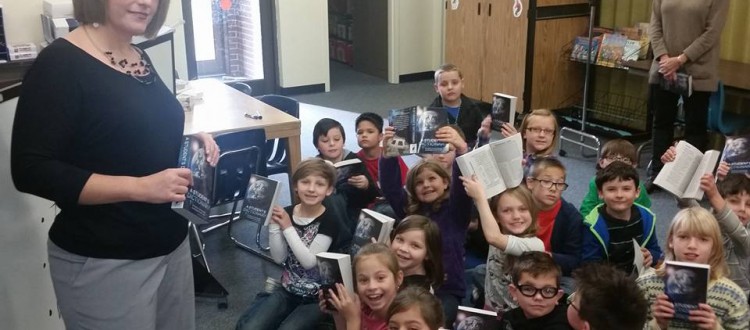Tips to Promote Academic Success: 2. Interact
in·ter·act /ˌin(t)ərˈakt/, verb:
1. to talk or do things with other people
2. to act together : to come together and have an effect on each other
The opportunity for social interaction is very important for the development of a child’s interpersonal skills, including self-awareness, the ability to problem solve, and effectively communicate. Children who learn appropriate social skills often have a higher self-esteem and show a greater willingness to interact with individuals in their environment as they grow older.
When sponsors, like the Rotary Club of Corinth, visit a classroom to present dictionaries, their interaction with students makes a lasting impression. Since 2007 members of the Rotary Club of Corinth, NY have participated in The Dictionary Project to promote educational development and interpersonal skills. At the beginning of each presentation, Corinth Rotarian Alysse Kasowski introduces the Rotary 4-Way Test:
In all we think, say or do, consider:
Is it the TRUTH?
Is it FAIR to all concerned?
Will it build GOODWILL and BETTER friendships?
Will it be BENEFICIAL to all concerned?
By definition, if people interact with each other, they will have an effect on each other. Thus, it is important to think about what kind of effect you have on someone or something – the underlying inquiry of the 4-Way test. Kasowski tells students that truth, fairness, and goodwill are beneficial to all mankind and just as important to a 3rd grader as it is to a Rotarian. She shares with students the importance of being a good citizen and encourages them to volunteer ever day to make the world a better place.
One student responded by saying, “What if you run out of a job though?” Kasowski chuckled and responded by saying, “That’s the beauty of doing good, you can never do enough.”






